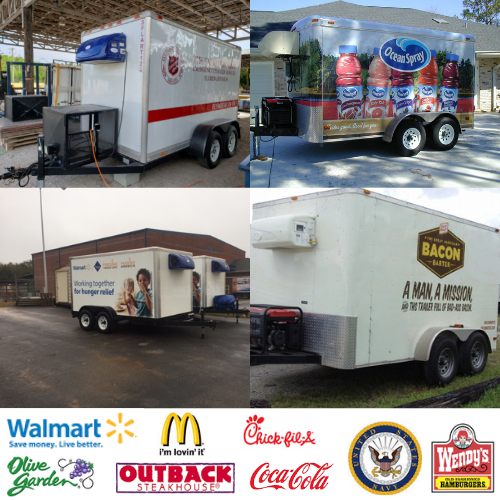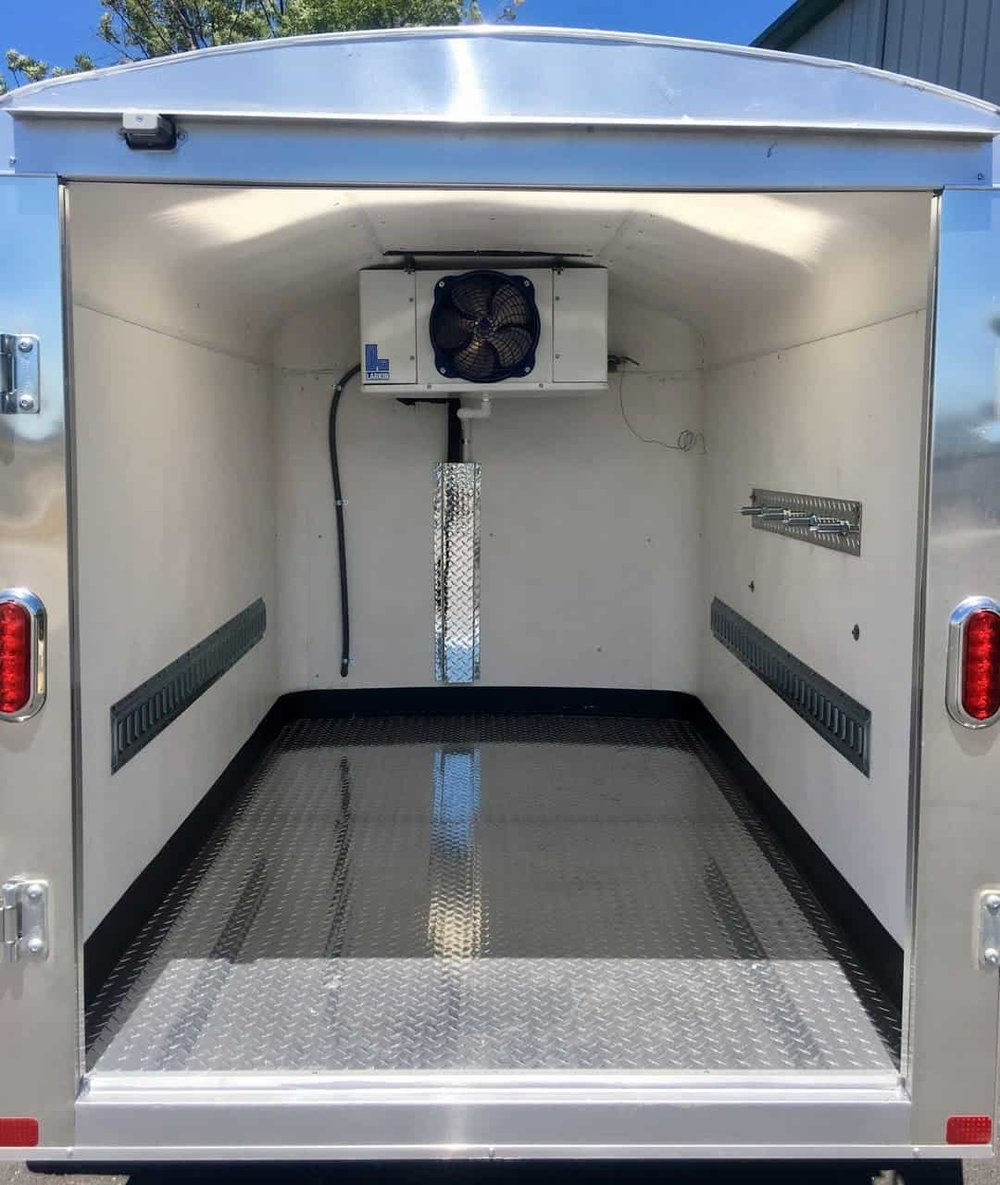Small Refrigerated Trailer-Cooler Trailers: Keep Cool Wherever You Go
Small Refrigerated Trailer-Cooler Trailers: Keep Cool Wherever You Go
Blog Article
The Ultimate Overview to Selecting the very best Refrigerated Trailers
When it pertains to selecting the excellent cooled trailer for your company demands, different elements should be meticulously thought about to make sure optimum performance and effectiveness. From the different sorts of cooled trailers readily available to the essential functions such as dimension, temperature level control, and power efficiency, each facet plays an essential role in identifying the most effective suitable for your particular needs. In addition, upkeep and solution suggestions are necessary to prolonging the life-span of your cooled trailer. By checking out the complexities of these considerations, you will be geared up to make an educated choice that aligns with your operational goals and budget plan restraints.
Types of Refrigerated Trailers

When taking into consideration the sorts of refrigerated trailers, it is necessary to assess their specific attributes and capacities to match the transport demands of perishable items. The two primary types of cooled trailers are reefer trailers and insulated trailers. Reefer trailers, brief for cooled trailers, are outfitted with cooling down systems that actively manage the interior temperature level to keep perishable items at the needed conditions throughout transportation. These trailers are optimal for items like fresh fruit and vegetables, dairy, meat, and drugs that need accurate temperature control - small refrigerated trailer- cooler trailers.

Dimension Factors To Consider
Thinking about the dimensions of the chilled trailer is crucial to make sure optimal storage capacity and effective transport of subject to spoiling items. When picking the size of a chilled trailer, it is vital to take right into account the quantity of products that require to be carried.
An additional variable to consider when identifying the size of the cooled trailer is the dimensions of the items being delivered. Some products may have particular dimension demands or need to be stacked in a particular way to stop damage. Picking a trailer size that suits the dimensions of the products will help keep their top quality during transit.

Temperature Level Control Features
Reliable monitoring of temperature level control in refrigerated trailers is important for preserving the quality and safety of perishable products throughout transportation. When choosing a chilled trailer, it is necessary to think about the temperature control features it supplies.
Furthermore, some cooled trailers include multi-zone temperature control capacities, permitting different areas to maintain varying temperatures as needed for different kinds of goods. When transporting a mix of disposable products with distinctive temperature level needs, this attribute is especially beneficial. Additionally, trailers with effective insulation and temperature level uniformity throughout the cargo area help stop cool or hot areas, making sure regular conditions for all goods being carried
Energy Performance Aspects
A vital facet to assess when choosing a cooled trailer is its energy efficiency, which plays a significant duty in minimizing functional expenses and environmental influence. Energy efficiency factors to think about consist of the insulation top quality of the trailer, the kind of refrigeration system utilized, and any kind of added features that add to decreasing energy intake. High-quality insulation is essential as it assists preserve the preferred temperature inside the trailer with minimal energy loss. Modern refrigeration systems, such as those using innovative innovation like electric standby options or solar energy, can also enhance energy efficiency. Additionally, attributes like automated defrost cycles, temperature level monitoring systems, and effective air movement layout can even more enhance energy usage. By prioritizing energy-efficient chilled trailers, companies can not just minimize general expenses but likewise minimize their carbon impact, making a positive contribution to sustainability initiatives in the transportation industry.
Maintenance and Service Tips
Provided the critical function of power performance in decreasing functional expenses, it is critical to establish a positive maintenance and solution routine for chilled trailers to make sure optimal efficiency and longevity. Routinely checking and keeping the trailer's refrigeration system is essential. This includes inspecting the gaskets for any type of damage, making certain proper insulation, and cleaning Visit Website the condenser and evaporator coils. Keeping an eye on temperature level levels and calibrating the thermostat periodically can assist stop temperature fluctuations that may endanger the top quality of the transported products. In addition, evaluating the trailer's tires, brakes, lights, and electric systems is crucial to ensure reputable and secure operation. Collaborating with a respectable service provider for regular maintenance checks and dealing with any type of issues promptly can substantially expand the lifespan of the refrigerated trailer. Implementing an in-depth upkeep timetable and keeping complete documents of all service and repair work carried out can help in determining fads, optimizing performance, and decreasing unforeseen malfunctions.

Final Thought
Finally, choosing the most effective refrigerated trailer includes thinking about different elements such as the sort of trailer, dimension demands, temperature level control functions, energy efficiency, and upkeep needs. By evaluating these elements very carefully, companies can ensure they pick a refrigerated trailer that fulfills their particular needs and needs, ultimately bring about a lot more reliable transportation and storage space of temperature-sensitive products.
The two key types of additional resources cooled trailers are reefer trailers and insulated trailers (small refrigerated trailer- cooler trailers). Reefer trailers, short for chilled trailers, are geared up with cooling systems that proactively control the internal temperature level to keep subject to spoiling products at the necessary conditions during transport.On the various other hand, shielded trailers are designed to preserve the temperature level of the items using the insulation homes of the trailer walls. While they do not have energetic cooling systems like reefer trailers, insulated trailers are suitable for items that need protection from exterior temperature variations but do not call for as rigorous temperature level control recommended you read as subject to spoiling items.Efficient administration of temperature control in refrigerated trailers is critical for maintaining the top quality and safety of disposable products during transportation
Report this page